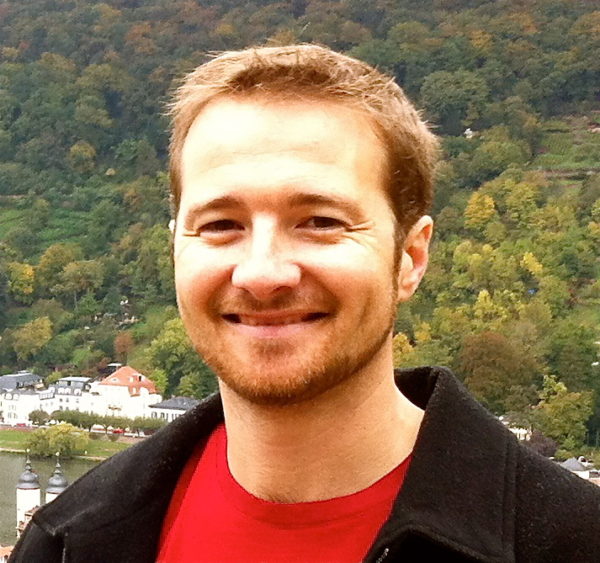
 What is your position or role in the DESI project?
What is your position or role in the DESI project?
I am a core member of the Data Systems team, the group which is responsible for taking the “raw” observations from DESI and delivering science-ready data for the rest of the collaboration. I am also actively involved in the DESI imaging surveys (check out legacysurvey.org/viewer to tour around the sky!), and the group which is responsible for choosing the targets that DESI will observe.
Where were you born?
I was born in Athens, Greece to a Greek father and an American mother, but moved to San Diego, California when I was eight years old. I grew up, as my father would say, a “beach bum!”
Where do you live now?
My family—my wife and two boys, aged 8 and 12—and I live near Albany, New York, about three hours north of New York City, where I am a physics professor at Siena College, a small private liberal arts college. We own a nice home on about half an acre, have a great dog, and raise chickens!
What do you do as part of DESI?
I spend between 20% and 40% of my time on DESI, depending on how busy I am with teaching! Most of my time right now is spent in support of the imaging surveys, making sure that DESI will turn its powerful spectroscopic fibers on the “right” distant galaxies and quasars, which will tell us about the energy content and evolution of the universe.
What is the most interesting or exciting thing about DESI?
DESI is an incredibly ambitious and powerful instrument and project, which is tackling one of the most important outstanding problems in physics and arguably all of science—what is the physical nature of dark energy? The answer to this question will lead to new discoveries beyond our current knowledge, which is very exciting! It’s also a privilege to be working with such a bright and dedicated group of engineers and scientists. Tackling questions at the frontier of knowledge is what originally drew me to astronomy, and it’s humbling to be involved in the next 5-8 years of cutting-edge discoveries.
Any advice for an aspiring scientist?
My advice for an aspiring scientist is three-fold: First, be passionate about what you do; be curious, open to new ideas and perspectives, and strive to learn as much as you can at all times. Second, learn to code! Of course you should learn as much physics, astronomy, and math as you can, but I have found that being proficient with a programming language is enormously powerful and useful. And finally, learn to write well. The key to science is being able to communicate clearly and effectively.
What do you do for fun?
Most of my fun, free time is spent with my family. I coach all my kid’s sports teams, including my younger son’s travel baseball team. I also love gardening, tackling “do-it-yourself” projects around the house, and exercising!